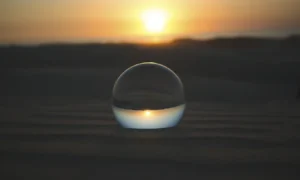Is existence absolute or relative?
Delving into the Enigma of Existence
Absolute or Relative?
Contemplating the nature of existence, whether it stands as an absolute truth or a relative construct, is an endeavor that has intrigued philosophers, scientists, and thinkers across epochs. This profound inquiry transcends the confines of empirical observation, inviting us to explore the essence of reality and our place within it. In this philosophical expedition, we embark on a journey to unravel the complexities of existence, drawing from the wellsprings of both scientific inquiry and philosophical contemplation.
Existence, in its essence, presents itself as a labyrinth of profound intricacy, challenging us to discern its fundamental nature. Some argue for the absoluteness of existence, contending that it stands as an immutable and unchanging reality beyond the fluctuations of human perception. Conversely, others advocate for the relativity of existence, suggesting that its nature is contingent upon the observer and influenced by contextual factors. This dialectic engenders profound reflections on the fabric of reality and our understanding thereof.
Philosophical luminaries throughout history have offered diverse perspectives on the nature of existence. Immanuel Kant, in his transcendental idealism, proposed that existence is relative to the framework of human cognition, shaped by our perceptual faculties and conceptual categories. Friedrich Nietzsche, in his existential musings, challenged traditional conceptions of absolute existence, advocating for a perspectival understanding of reality in which truth emerges from individual interpretation.
“Reality is a question of perspective; the further you get from the past, the more concrete and plausible it seems—but as you approach the present, it inevitably seems more and more fantastic.”
Salman Rushdie
“The universe is change; our life is what our thoughts make it.”
Marcus Aurelius
Sources:
- Immanuel Kant, “Critique of Pure Reason”
- Friedrich Nietzsche, “Thus Spoke Zarathustra”
In conclusion, the question of whether existence is absolute or relative remains an enigma that continues to captivate human curiosity. Perhaps, existence transcends the dichotomy of absolute and relative, residing within a realm of nuanced interplay between these perspectives. Much like the shifting sands of the desert, reality may appear absolute from one angle, yet reveal its relativity from another. Embracing the complexity of existence invites us to navigate the fluidity of reality with humility and open-mindedness, recognizing that our understanding of existence is but a fleeting glimpse into the vast mysteries of the cosmos.
Let us ponder the words of Carl Sagan, who famously said, “The cosmos is within us. We are made of star-stuff. We are a way for the universe to know itself.” Embrace the boundless depths of existence, for within its unfathomable mysteries lies the essence of our being and the infinite possibilities of human exploration.
Is there a supreme being or creator behind existence?
Contemplating the Existence of a Supreme Being
Philosophical Inquiry
The question of whether there exists a supreme being or creator behind existence has been a topic of profound philosophical contemplation and theological debate for centuries. It delves into the very nature of reality, our place in the cosmos, and the ultimate meaning of existence. In this philosophical exploration, we embark on a journey to probe the depths of this timeless question, drawing insights from both scientific inquiry and philosophical reflection.
The inquiry into the existence of a supreme being transcends mere empirical observation and enters the realm of metaphysics, where the boundaries of human understanding are stretched to their limits. Some argue for the existence of a transcendent creator, positing that the intricacies and orderliness of the universe point towards intelligent design. Others maintain a stance of skepticism, asserting that the universe operates according to natural laws and emergent phenomena, without the need for a divine architect.
Throughout history, philosophers and theologians have grappled with the question of divine existence. René Descartes famously proposed his ontological argument, asserting that the idea of a perfect being necessarily entails existence. On the other hand, Immanuel Kant cautioned against relying solely on rational arguments for the existence of God, emphasizing the limitations of human understanding in matters of metaphysics.
“Faith is taking the first step even when you don’t see the whole staircase.”
Martin Luther King Jr.
“The most beautiful thing we can experience is the mysterious. It is the source of all true art and science.”
Albert Einstein
Sources:
- René Descartes, “Meditations on First Philosophy”
- Immanuel Kant, “Critique of Pure Reason”
In conclusion, the question of whether there exists a supreme being or creator behind existence is one that transcends rational inquiry and enters the realm of faith, intuition, and personal conviction. Like a tapestry woven from the threads of countless perspectives, human understanding of divinity is multifaceted and deeply subjective. Some find solace and meaning in the belief in a higher power, while others find fulfillment in the pursuit of scientific inquiry and naturalistic explanations.
As the poet Khalil Gibran once wrote, “Your daily life is your temple and your religion. Whenever you enter into it, take with you your all.” Whether one finds meaning in the worship of a divine creator or in the reverence for the mysteries of the natural world, the journey of seeking understanding is a deeply personal and transformative endeavor. Embrace the complexities of existence, for within its depths lie the boundless possibilities of human exploration and discovery.
Is existence random or determined?
Exploring the Nature of Existence
Random or Determined?
The inquiry into whether existence unfolds through randomness or determinism stands as a cornerstone of philosophical contemplation and scientific inquiry. It ventures into the depths of the cosmos, questioning the underlying principles that govern the universe and shape our perception of reality. In this philosophical journey, we embark on an exploration of the intricate interplay between randomness and determinism, seeking to unravel the enigma of existence.
The debate between randomness and determinism has intrigued philosophers and scientists for centuries, offering divergent perspectives on the fundamental nature of reality. Proponents of determinism argue that every event, from the trajectory of celestial bodies to the unfolding of human history, is governed by preexisting causes and conditions. Conversely, advocates of randomness highlight phenomena, particularly at the quantum level, that appear inherently unpredictable and subject to chance. This dichotomy challenges our understanding of causality, agency, and the underlying order of the universe.
Philosophers throughout history have grappled with the complexities of existence and the interplay between randomness and determinism. Baruch Spinoza, in his philosophical treatise “Ethics,” proposed a vision of reality in which every event is determined by the immutable laws of nature, leading to a conception of determinism known as causal determinism. However, the advent of quantum mechanics in the 20th century introduced a new layer of complexity, with physicists like Niels Bohr and Werner Heisenberg suggesting that certain phenomena exhibit inherent randomness and uncertainty.
“Life is not a matter of chance, but a matter of choice.”
“In the midst of chaos, there is also opportunity.”
Sun Tzu
Sources:
- Baruch Spinoza, “Ethics”
- Niels Bohr, “Atomic Physics and Human Knowledge”
In conclusion, the question of whether existence is governed by randomness or determinism remains an enduring mystery that transcends the boundaries of human understanding. Perhaps, like a grand symphony conducted by the cosmos, existence unfolds through a harmonious interplay of randomness and determinism, with each note contributing to the rich tapestry of reality. Embracing the inherent uncertainty of existence invites us to navigate the complexities of life with humility and wonder, recognizing that our quest for understanding is but a small part of the infinite symphony of the universe.
As the poet Walt Whitman once wrote, “I am large, I contain multitudes.” In this vast and wondrous universe, where randomness and determinism intertwine, we discover the boundless potential of human exploration and the profound interconnectedness of all things.




